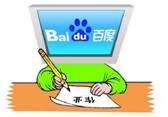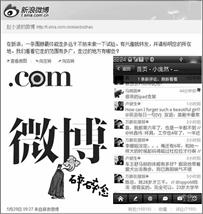题目内容
If you ask your parents: “Did you buy salt recently?” They might either say: “Yes, we bought more salt than usual”, or “No, we couldn’t find any in the market.”
This is because of the recent craze(狂热) of salt buying in China. In big cities like Beijing, Shanghai and Shenzhen, salt almost sold out in only one night.
After the big earthquake in Japan on March 11, there was a nuclear leak(核泄漏). And rumors(传言) about whether it will affect our daily life appeared: first, iodized(含碘的) salt can keep us from the dangers of radiation(辐射);second, there will be less sea-salt in the ocean because of the nuclear pollution.
Both the government and experts said the rumors were not true, but people still bought as much salt as possible. Why? Many salt-buyers didn’t really care or know what experts or the government were saying. That was the real reason behind the craze of salt buying.
On March 20, the government said the salt market is back to normal. And most of China’s salt is from lakes, not the ocean.
Now, many people want to return the salt they bought. “There is no reason why those people should get their money back,” an article in Xinhua Daily Telegraph said. “They made the craze in the first place.”
Perhaps people should learn a lesson from the salt: don’t believe everything you hear.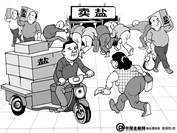

小题1:The recent craze of salt buying in China happened because of ________.
A. the earthquake
B. the rumors
C. the shortage(缺乏) of salt
小题2:When did the rumors start?
A. On March 11.
B. After March 11.
C. On March 20.
小题3:According to the passage most of China’s salt is from ________.
A. lakes B. the ocean C. rivers
小题4:Which of the following statements is true according to the passage?
A. People believed what the government and experts said first.
B. People could return the salt and got back their money later.
C. Salt almost sold out in only one night because of the rumors.
小题5:The passage tells us that ________.
A. we can’t believe everything we hear
B. there must be a nuclear leak after an earthquake
C. only iodized salt can keep us from the dangers of radiation
This is because of the recent craze(狂热) of salt buying in China. In big cities like Beijing, Shanghai and Shenzhen, salt almost sold out in only one night.
After the big earthquake in Japan on March 11, there was a nuclear leak(核泄漏). And rumors(传言) about whether it will affect our daily life appeared: first, iodized(含碘的) salt can keep us from the dangers of radiation(辐射);second, there will be less sea-salt in the ocean because of the nuclear pollution.
Both the government and experts said the rumors were not true, but people still bought as much salt as possible. Why? Many salt-buyers didn’t really care or know what experts or the government were saying. That was the real reason behind the craze of salt buying.
On March 20, the government said the salt market is back to normal. And most of China’s salt is from lakes, not the ocean.
Now, many people want to return the salt they bought. “There is no reason why those people should get their money back,” an article in Xinhua Daily Telegraph said. “They made the craze in the first place.”
Perhaps people should learn a lesson from the salt: don’t believe everything you hear.


小题1:The recent craze of salt buying in China happened because of ________.
A. the earthquake
B. the rumors
C. the shortage(缺乏) of salt
小题2:When did the rumors start?
A. On March 11.
B. After March 11.
C. On March 20.
小题3:According to the passage most of China’s salt is from ________.
A. lakes B. the ocean C. rivers
小题4:Which of the following statements is true according to the passage?
A. People believed what the government and experts said first.
B. People could return the salt and got back their money later.
C. Salt almost sold out in only one night because of the rumors.
小题5:The passage tells us that ________.
A. we can’t believe everything we hear
B. there must be a nuclear leak after an earthquake
C. only iodized salt can keep us from the dangers of radiation
小题1:B
小题2:B
小题3:A
小题4:C
小题5:A
试题分析:本文讲述的是日本地震之后,引起的核泄漏,使中国人引起了恐慌。人们听信传言,海水会被辐射,我们的食用盐将有危害,于是疯狂囤积食用盐。一夜之间,几乎所有的盐都被卖光了。后来政府辟谣,我们吃的盐都是来自湖里,而不是海里。主要告诉我们不要随便轻信你所听到的。
小题1:细节理解题。根据原文After the big earthquake in Japan on March 11, there was a nuclear leak可知日本地震之后引起了核泄漏,人们担心额辐射对海水的影响会关联到食用盐,所以引起了买盐热潮。故选B。
小题2:细节理解题。根据原文After the big earthquake in Japan on March 11, there was a nuclear leak可知三月11日日本发生地震,核泄露是在地震之后。故选B。
小题3:细节理解题。根据原文And most of China’s salt is from lakes, not the ocean.可知中国的食盐主要来自湖泊,而不是海洋。故选A。
小题4:判断对错题。根据原文In big cities like Beijing, Shanghai and Shenzhen, salt almost sold out in only one night.可知所有的食盐几乎在一夜之间卖光了。故选C。
小题5:细节理解题。根据原文Perhaps people should learn a lesson from the salt: don’t believe everything you hear.可知我们不应该随便相信传言。故选A。

练习册系列答案
 同步练习河南大学出版社系列答案
同步练习河南大学出版社系列答案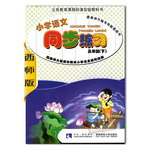 同步练习西南师范大学出版社系列答案
同步练习西南师范大学出版社系列答案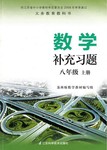 补充习题江苏系列答案
补充习题江苏系列答案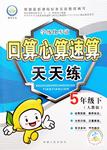 学练快车道口算心算速算天天练系列答案
学练快车道口算心算速算天天练系列答案
相关题目
